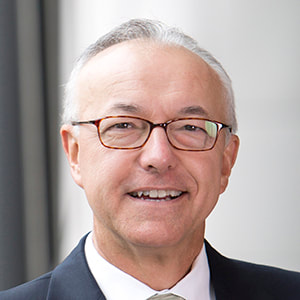|
Date: 20 May 2021
Time: 8 - 9pm (SGT; note the evening timing) Format: Webinar (registration is required) Hosted by: Adrian TEO, IMCB & ExCo SCSS |
ABSTRACT
Through their differentiation in vitro, pluripotent stem cells can be employed for the study of embryonic hematopoietic development, and hold promise for modeling genetic diseases of the blood like immune deficiency, bone marrow failure, and hemoglobinopathy. Current protocols for directing hematopoietic differentiation faithfully recapitulate myeloid, NK, B and T cell development, recapitulating the various stages of hematopoietic ontogeny and producing bona fide hematopoietic stem cells (HSC) has proven challenging. Novel strategies to achieve the production of specific hematopoietic lineages for medical applications, and to achieve the ultimate goal of HSC derivation will be discussed.
BIO
George Q. Daley, MD, PhD, is the dean of Harvard Medical School. A world-renowned physician-scientist and educator, his achievements span basic science, translational research and clinical medicine. Daley is at the forefront of stem cell science and cancer biology, and his discoveries have twice been cited in Science’s Top 10 Breakthroughs of the Year. His research paved the way for Gleevec, a “magic bullet” drug for chronic myeloid leukemia; generated stem cell models for more than a dozen human diseases; and advanced our understanding of tissue regeneration and bone marrow transplantation therapies. He has also been a central force in establishing international guidelines for the conduct of stem cell research. Daley earned his AB and MD degrees from Harvard and a PhD in biology from MIT, and has worked as a trainee, fellow and staff physician at several HMS-affiliated hospitals.
Through their differentiation in vitro, pluripotent stem cells can be employed for the study of embryonic hematopoietic development, and hold promise for modeling genetic diseases of the blood like immune deficiency, bone marrow failure, and hemoglobinopathy. Current protocols for directing hematopoietic differentiation faithfully recapitulate myeloid, NK, B and T cell development, recapitulating the various stages of hematopoietic ontogeny and producing bona fide hematopoietic stem cells (HSC) has proven challenging. Novel strategies to achieve the production of specific hematopoietic lineages for medical applications, and to achieve the ultimate goal of HSC derivation will be discussed.
BIO
George Q. Daley, MD, PhD, is the dean of Harvard Medical School. A world-renowned physician-scientist and educator, his achievements span basic science, translational research and clinical medicine. Daley is at the forefront of stem cell science and cancer biology, and his discoveries have twice been cited in Science’s Top 10 Breakthroughs of the Year. His research paved the way for Gleevec, a “magic bullet” drug for chronic myeloid leukemia; generated stem cell models for more than a dozen human diseases; and advanced our understanding of tissue regeneration and bone marrow transplantation therapies. He has also been a central force in establishing international guidelines for the conduct of stem cell research. Daley earned his AB and MD degrees from Harvard and a PhD in biology from MIT, and has worked as a trainee, fellow and staff physician at several HMS-affiliated hospitals.

